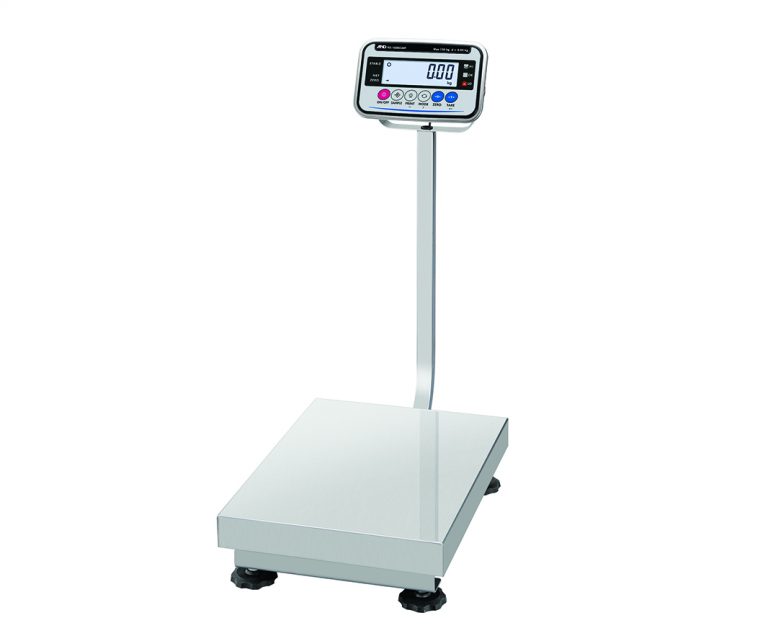In the vast complexities of industrial backgrounds, where precision and speed are mission-critical, the platform scale emerges as a quiet hero of day-to-day operations. Whether in manufacturing, logistics, or any sector where material handling is pivotal, the strategic deployment of platform scales can dramatically elevate efficiency.
Introduction: Efficiency as the Backbone of Industrial Success
Efficiency isn't just a buzzword in the industrial world—it's the foundational principle that dictates the survival and success of any operation. The ability to complete tasks in the least amount of time, with minimal waste, and maximum accuracy is what separates leaders from followers in a fiercely competitive landscape. Enter platform scales, the unsung tools that can streamline operations in ways that directly impact the bottom line.
Platform scales are more than just simple measuring devices. These machines are the cornerstone of intelligent process optimization, ranging from basic weighing tasks to more advanced inventory management protocols. For those at the helm of industrial affairs, understanding and leveraging the prowess of platform scales is not just a matter of enhancing operations; it's a necessity for staying relevant in the modern market.
The Role of Platform Scales: Beyond Weight Measurement
Platform scales, sometimes overlooked in the glare of high-tech machinery, perform a role far beyond simple weight measurement. These robust tools, typically designed to handle large and heavy loads, have a profound impact in several key areas:
Definition and Purpose
At its essence, a platform scale is a weighing scale where goods are placed for measurement. However, its size and capacity make it ideal for large and heavy materials, often found at the intersection of production lines and warehouses. They're mobile, durable, and equipped with the latest technologies to ensure that every measurement is not just a number but is representative of a larger operational reality.
Benefits of Using Platform Scales in Industrial Settings
The advantages of integrating platform scales into industrial settings are variegated. They provide a real-time quantification of materials, initiate automated actions based on weight thresholds, and contribute to data-driven decision-making. When calibrated and maintained correctly, they become reliable assets that support a company's commitment to quality and service excellence.
Improving Accuracy and Precision: Every Gram and Inch Counts
In industries where materials are bought, sold, or transformed based on weight, there is no room for approximation. Here's how platform scales stringently implement accuracy and precision:
Ensuring Accurate Measurements
Whether it's ingredients in a pharmaceutical batch or raw materials for automotive parts, the accuracy of measurements is non-negotiable. Platform scales, with their high precision load cells and advanced digital displays, offer exact readings that can be trusted for every operation.
Reducing Errors and Waste
Accurate weights mean less material overages and underage, which directly translates into cost savings. By minimizing errors that can cascade through production or logistics, platform scales help prevent the waste of both raw materials and labour hours in rectifying mistakes.
Enhancing Productivity: Streamlining Weighing Processes
In a fast-paced industrial environment, every step saved is a victory for efficiency. Platform scales contribute to a productivity surge in the following ways:
Saving Time and Labor Costs
The speed with which a platform scale can weigh materials and goods is significant. Complex algorithms allow for quick readings and can even be integrated with other systems to automate data recording processes, reducing the need for manual labor and ensuing that tasks are completed with the highest possible velocity.
Streamlining Weighing Processes
With the ability to weigh materials on the move, platform scales streamline processes that might have been previously bottlenecked by the need for manual lifting and stationary weighing.
Optimizing Inventory Management: Keeping a Finger on the Material Pulse
Effective inventory management is as much about precision as it is about prediction. Platform scales play a dual role in this delicate balance:
Tracking Inventory Levels
Real-time tracking of weighing data allows for a comprehensive overview of inventory levels. This data, when fed into inventory management software, can trigger alerts for restocking or re-shuffling, keeping the inventory at an optimal level to meet operational demand without excess.
Facilitating Supply Chain Management
Platform scales facilitate supply chain management by providing metrics critical for demand forecasting, supplier evaluations, and order fulfilment. By consistently and accurately tracking the flux of materials, they aid in building agile and responsive supply chains.
Ensuring Safety and Compliance: Regulatory Guardianship and Accident Prevention
The industrial sector is governed by strict regulations, with non-compliance often carrying heavy penalties. Platform scales support safety and regulatory adherence in the following ways:
Meeting Regulatory Requirements
Many industries require certified scales that meet stringent measurement standards. Platform scales, when maintained and calibrated to these standards, not only assure internal quality control but also serve as physical guarantees during regulatory audits.
Preventing Accidents and Product Recalls
Under- or overfilling containers due to inaccurate measurements can pose safety hazards and result in product recalls. Platform scales serve as a vital checkpoint in production, ensuring that each stage complies with safety standards and that only products of the highest quality reach the market.
Conclusion: Embracing Platform Scales for a Leaner, Smarter Industry
The role of platform scales in lifting the efficiency bar of industrial operations is clear. They are the instruments that provide the granular data necessary for macro-level decision-making. From cost management to safety assurance and everything in between, platform scales speak volumes about the modern enterprise's commitment to excellence.
For industrial managers and logistics professionals, ensuring that platform scales are not only present but optimally utilized, maintained, and integrated into the larger operational framework is a step toward a more agile and competitive business model.
In summary, platform scales are the silent watchers, the providers of key intelligence, and the amplifiers of productivity in the industrial domain. It's high time we recognize their potential and give them their rightful place in the efficiency narrative of modern operations.





Comments